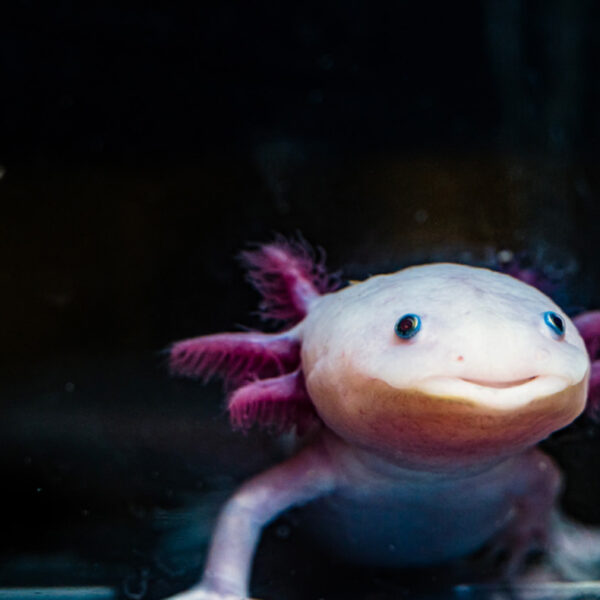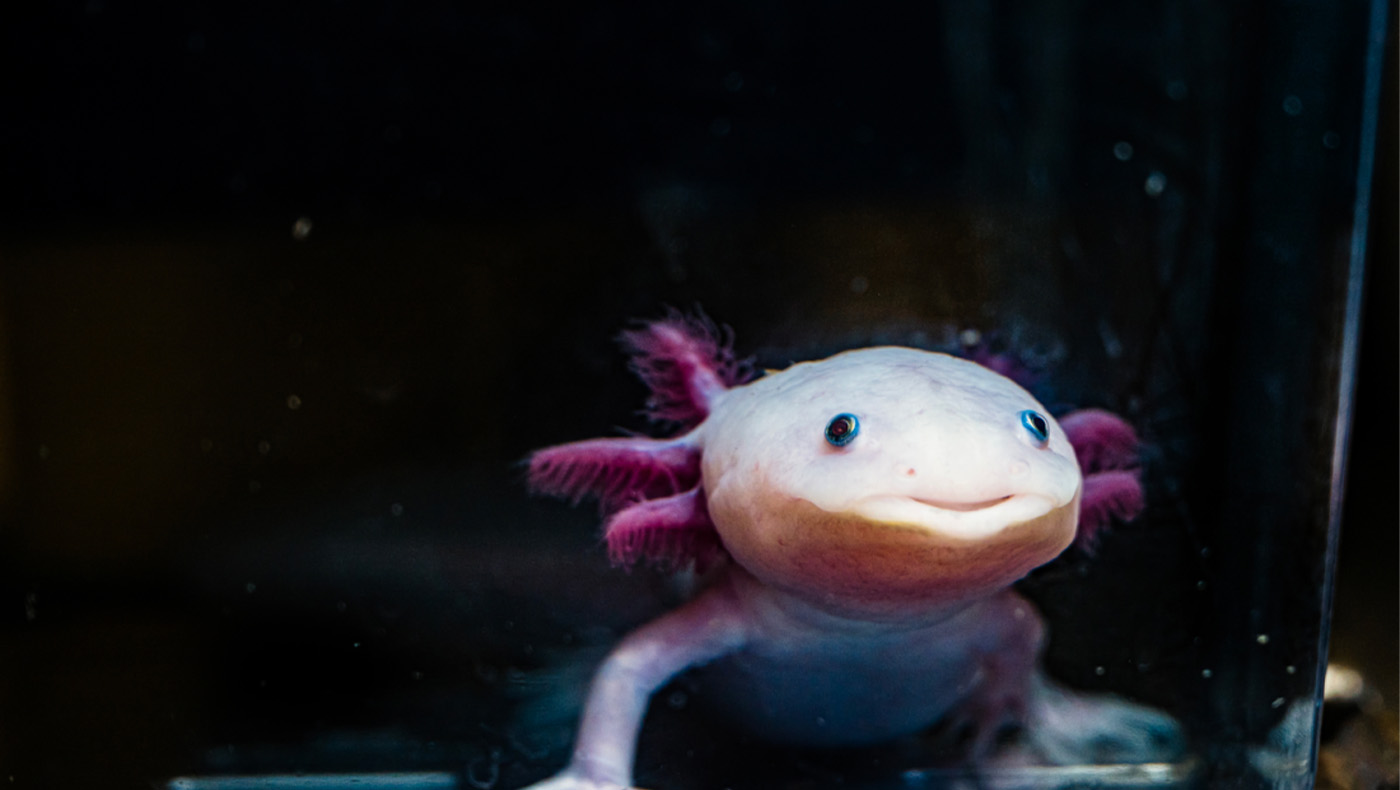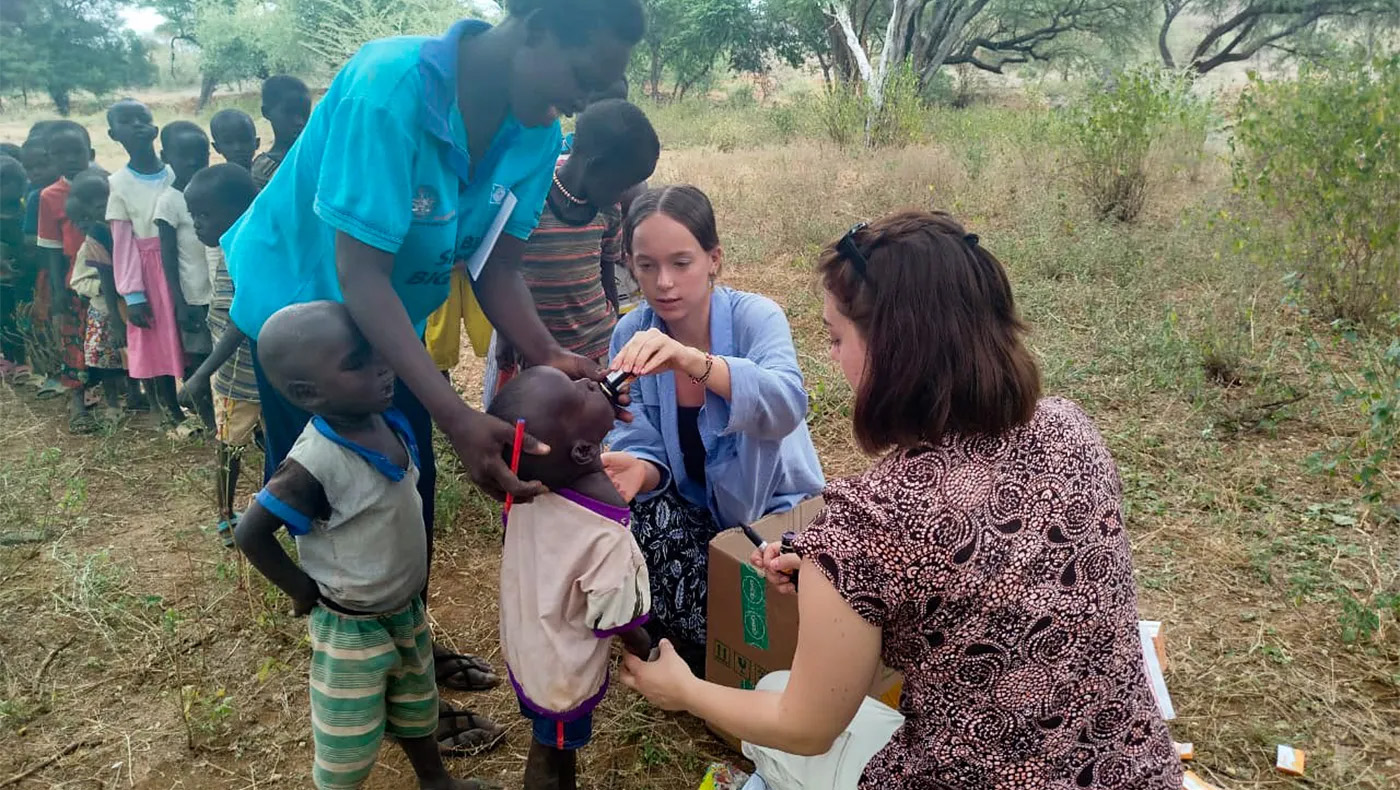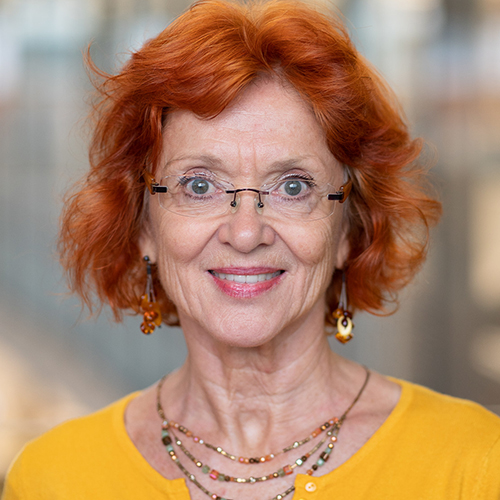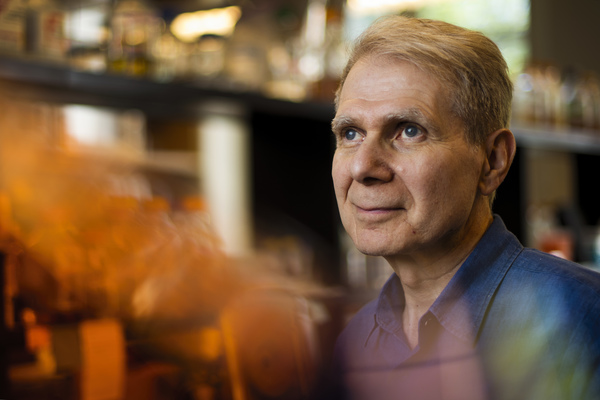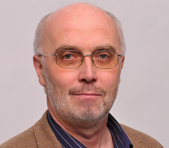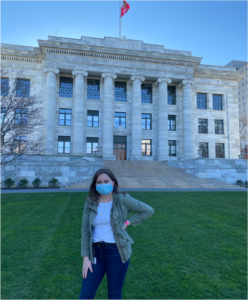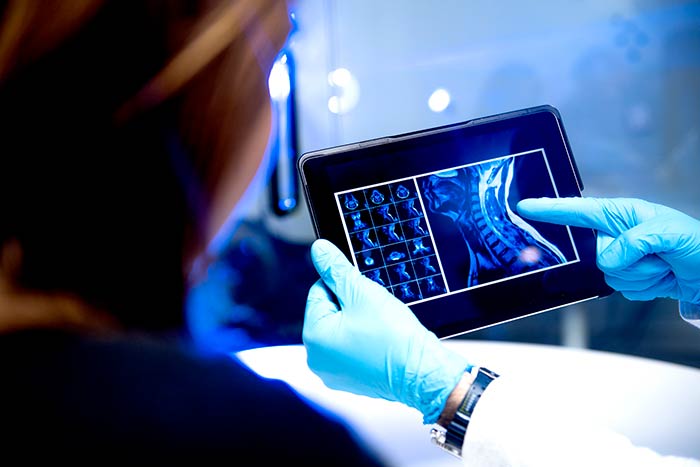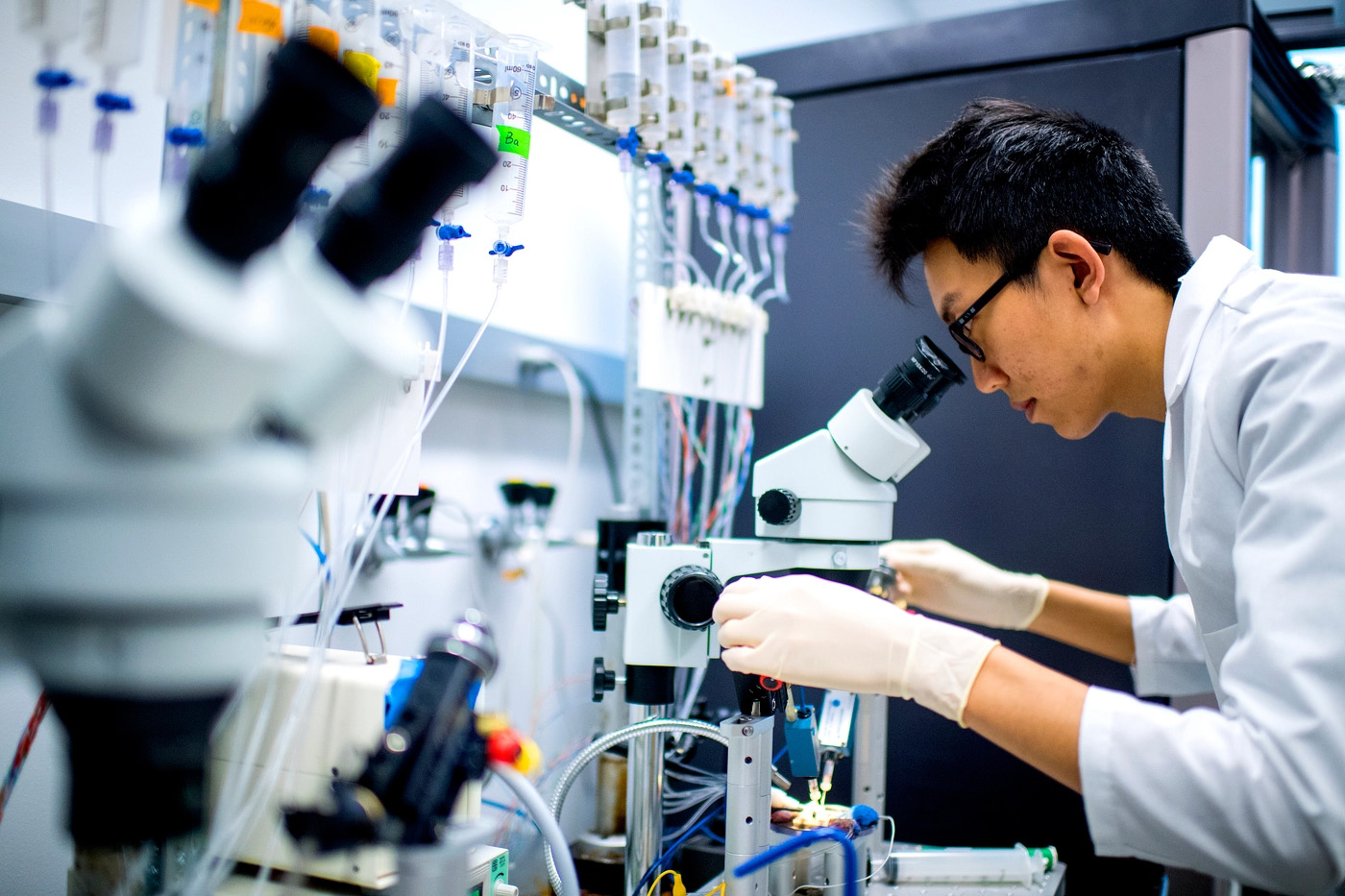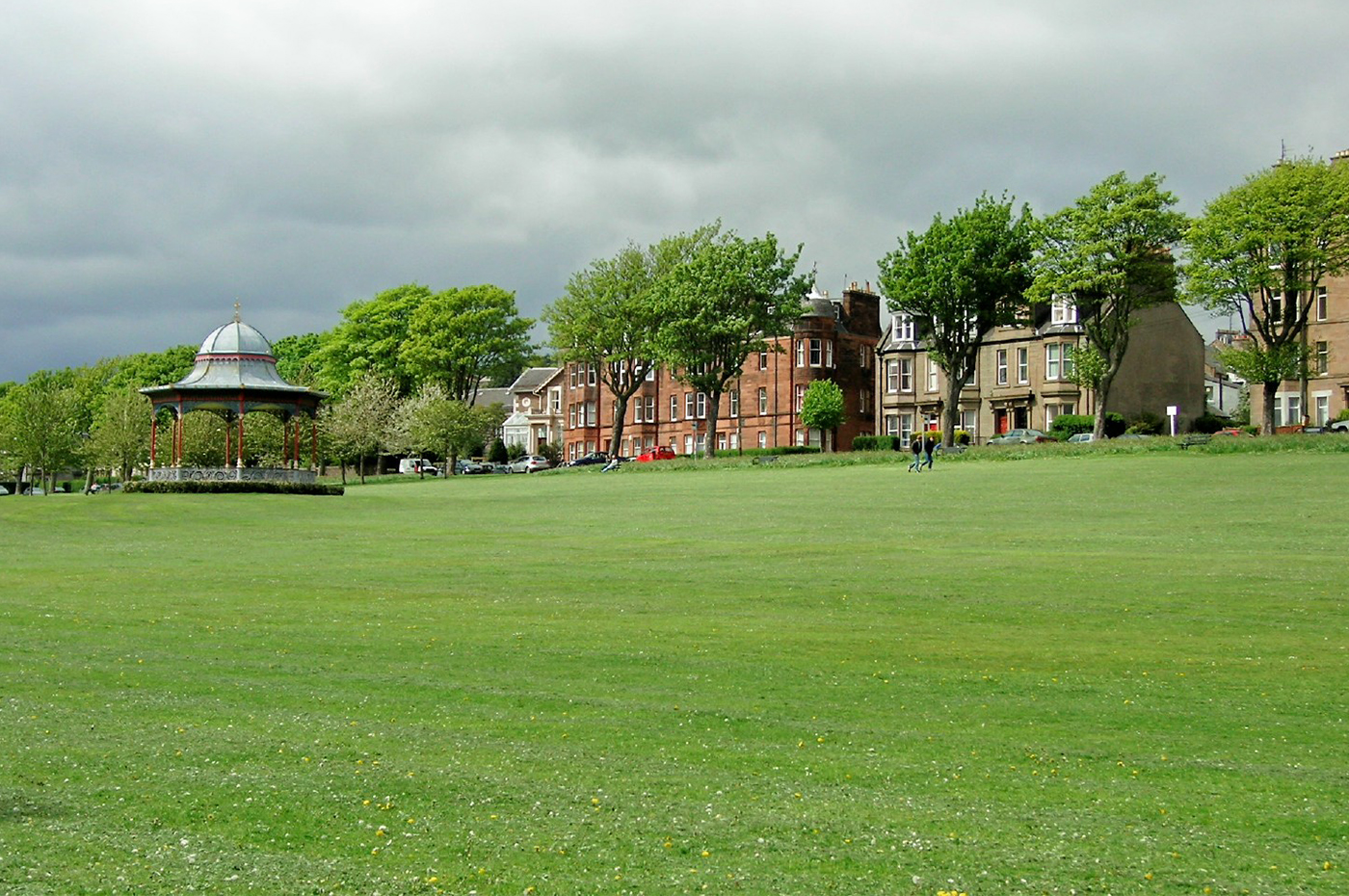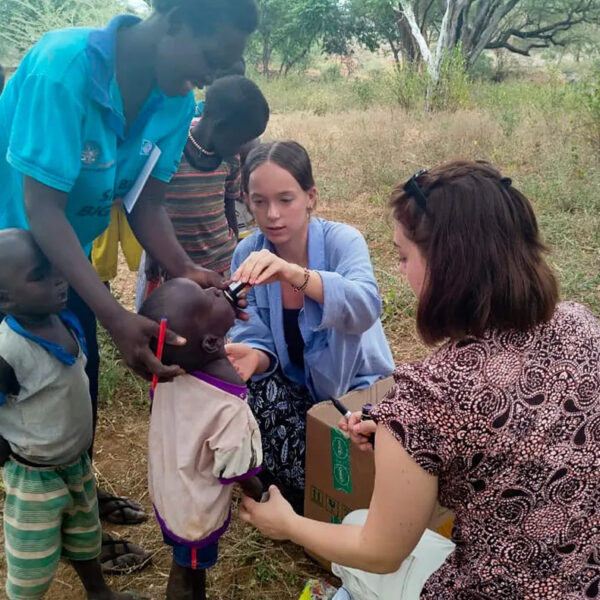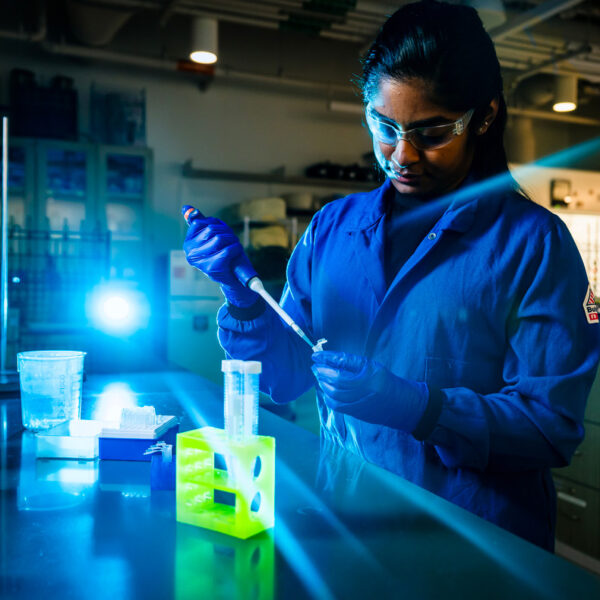Biology
It All Started with a Single Cell
The College of Science Biology program provides students with a broad understanding of the biological organization and processes of life, from molecules and cells through tissues and organs, to populations, ecosystems, and evolution.
In this brave new world of CRISPR gene-editing, implantable microchips, and artificial organs, human beings have begun to harness technology to move beyond their biological limits.
The science of the 21st century will fundamentally change the concept of life. Yet as complex as life has become, it all started with a single cell.
Your journey starts there.
Our scientific expertise spans the realm of biological sciences to drive advances in medicine and healthcare, biotechnology, education, and public policy.
Diversity & Inclusion
The College of Science supports a culture where each person feels they belong, regardless of race, color, religion, religious creed, genetic information, sex, gender, gender identity, sexual orientation, age, national origin, ancestry, veteran or disability status. We celebrate the diversity of our community, and we seek to expand representation to further excellence. We commit to be a College where members act with respect, trust, collaboration, and communication, and where inappropriate behavior is reported and acted on without fear of retaliation.
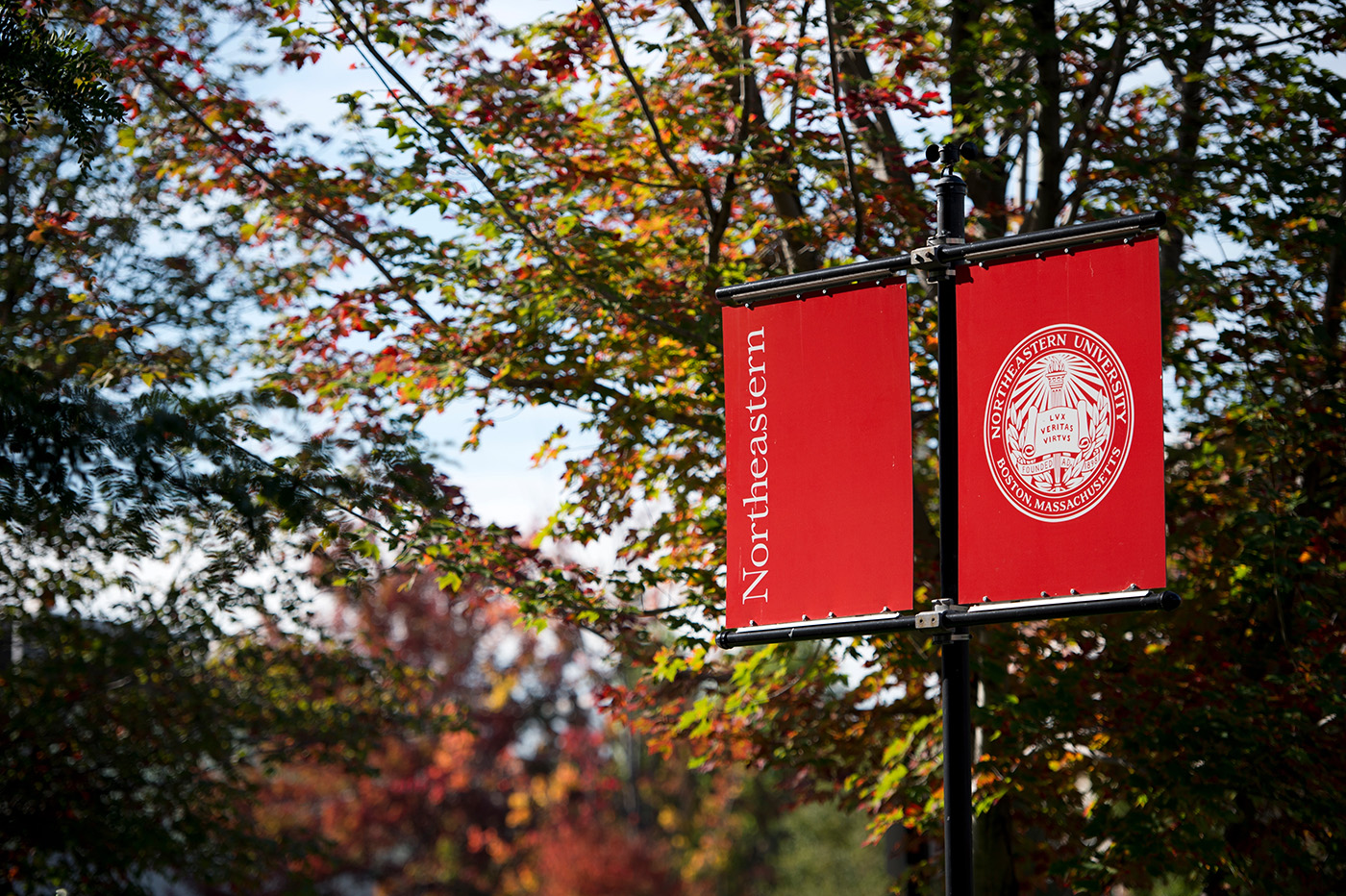
People
Rebecca Carrier
Offers students an opportunity to explore ethical issues arising from biological research and emerging technologies, to learn to identify and critically analyze potential ethical implications of biological research, and to evaluate theory-based arguments while respectfully engaging with a diversity of perspectives.
Offers an inquiry-based, intensive laboratory experience in which students have an opportunity to design and conduct independent research projects, applying approaches and techniques used in cell and molecular biology.
Examines the expression of endogenously generated twenty-four-hour (circadian) rhythms in eukaryotic life, emphasizing theoretical foundations as well as current research strategies for understanding how biological clocks work
News
